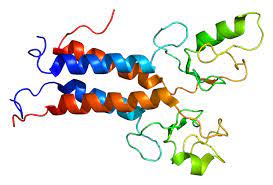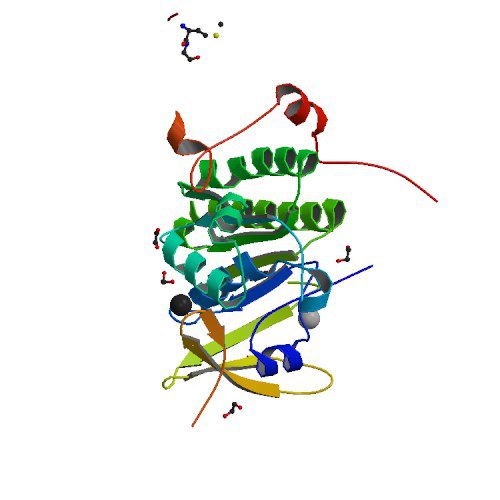I believe many people have heard of BRCA 1 & 2 and associate it with Breast Cancer. Fewer may be aware of the association with Ovarian Cancer. Newer findings, linked to these mutations, are linked with other cancers as well. I will quote a few statistics regarding risk of developing breast or ovarian cancer if you are positive for either of these gene variants. This information is from the “National Cancer Institute” and can be accessed at www.cancer.gov . I will also list other cancers that are linked to BRCA 1 & 2. The above website does go into racial/ethnic populations that are at higher risk, as well. In some studies, the statistics are indicative of other percentages of risk, the data is within a few percentage points of what is listed here.
Breast Cancer
- 13% of women in the general population will get breast cancer.
- Positive for BRCA1 55%-77% of women will develop breast cancer. Onset potentially at a much younger age in comparison to BRCA2
- Positive for BRCA2 45%-69% of women will develop breast cancer, more likely later in life. (70’s and 80’s)
Ovarian Cancer
- 1.2% of women in the general population will develop ovarian cancer
- Positive for BRCA1 29%-44% of women will develop ovarian cancer
- Positive for BRCA2 11%-17% of women will develop ovarian cancer.
Other Cancers linked to BRCA1 and 2
- Women: Fallopian Tube Cancer, Primary Peritoneal Cancer, Pancreatic Cancer
- Men: Breast Cancer, Prostate Cancer, and Pancreatic Cancer.
I would like to mention a few other, rare genes, that are linked with breast cancer, ovarian cancer and other cancers. These specific genes are referred to as “High-Penetrance genes and are referred to in “syndromes”. These are especially concerning when individuals that are also positive BRCA1 & 2
- TP53 (Li-Fraumeni syndrome)
- STK11 (LKB1, Peutz-jeghers syndrome)
- PTEN (PTEN hamartoma tumor syndrome)
- CDH1 (Hereditary diffuse gastric cancer syndrome)
- MSH1, MLH1, MSH6, PM52, and EPCAM (Lynch syndrome)
- PALB2 (this gene is known to partner & be associated with BRCA2, increases the susceptibility gene that encodes a BRCA2-interacting protein.
There are “Moderate-Penetrance” genes as well. If any of my readers are interested in having more information on a more detailed genetic based posting, I will be happy to do that, later. Regarding any hereditary genetic mutations, it is best to go through the process of seeing a medical provider that helps you navigate your concerns as well as going through a reputable company that does genetic testing. With the genetic testing they provide experts to speak with and offer a plethora of resources. I highly recommend “InVitae”. You can look them up online. That is where my genetic tests were done. The medical professional that was working with me recommended them and they can be accessed nationally. They offer free testing for your first-degree relatives/your children, if you are found to have abnormal findings. They do limit the free testing to a specific window of time, after you receive your positive results and they have been reviewed with you. Disclaimer: I have nothing to gain or have any affiliation with “InVitae”. I am recognizing them as a trustworthy option because, as a patient, I had an extraordinary experience with them.
Something to consider when delving into genetic testing, you are faced with so many decisions. Big decisions, where not doing anything is a big decision. Learning about the genetic mutations and variants often can mean long term screening and treatments. Just like anything else in life, once you know something, it is a part of you. I think of the example of looking for facts about your ancestry, which is very popular these days. Once you have the information, what are you going to do with it? What is the downstream impact of choices you make, or information discovered? There is a lot of controversy with genetic testing, for many reasons. One is the fear that (medical) insurance will drop you and/or it is difficult to get life insurance. I was not dropped by my health insurance or life insurance. Caveat is that my insurance was not purchased commercially. My benefits are through the medical organization I practice with. Each individual needs to check on their specific situation, to see what applies to them. When you are found to have cancer and there is suspect that you may have a genetic mutation linked to it, the decision to test is less difficult, In my opinion. I believe and have observed, with my siblings and children, the controversial factors are more common to come into play. Although my family cared about my health and what I was going through, somehow it is easier for them to “disconnect” that it could ever apply to them. They are sick, have never had any related health problems so they may think, “why test”. The old saying, “opening a can of worms”, could apply. At the same time playing ostrich and sticking your head in the sand does not protect you or your children, that are at risk as well. With that said, getting tested can save lives.




